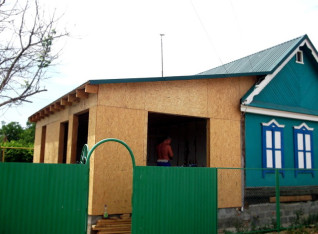Registration of a share in Italy: Legal aspects of real estate registration and legalization of redevelopments
In light of the growing interest in Italian real estate among foreign investors, the issues of registering shares and legalizing redevelopment are becoming particularly relevant. The process may seem complicated, but with the help of qualified professionals and an understanding of the basic legal aspects, you can successfully register your property in Italy.
Registration of a share: main stages
Share registration is a process that allows you to officially become the owner of a piece of real estate in Italy. This process includes several key steps:
Property check
Before proceeding with the registration of a share, it is important to conduct a thorough inspection of the property. This includes studying the history of the property, checking for encumbrances (mortgage, arrest) and assessing the technical condition of the property. A legal professional can help you through this process to avoid potential problems in the future.
Paperwork
After checking the property, the next step is to prepare and complete the necessary documents. This may include a sales contract (atto di compravendita), cadastral documents (visura catastale) and other documents confirming ownership.
Notarization
In Italy, for the official registration of a share, notarization of the transaction is required. A notary (notaio) verifies the legality of the transaction, identifies the parties and certifies the documents. This is a critical step to ensure your investment is legally protected.
Registration in the cadastre
After notarization, your share must be registered in the real estate cadastre (catasto). This is the official register containing information about all real estate properties in Italy, including their owners, size and value.
Obtaining ownership by acquisitive prescription
In some cases, you can obtain ownership of real estate or part of it through the institution of acquisitive prescription (usucapione). This applies to situations where you have openly, continuously and peacefully owned the property for a specified period (usually 20 years). However, this process requires legal recognition through the courts, and therefore it is important to have a strong evidentiary base.
Legalization of redevelopment: legal aspects
Many investors are interested in buying old Italian houses with a view to renovating them. However, any changes to the structure of the building must be officially legalized in order to avoid fines and problems during further sale.
Registration of redevelopment
Before redevelopment work can begin, permission must be obtained from the local municipality (comune). This may include the submission of detailed work plans, technical drawings and reports from architects or engineers.
Legalization of redevelopment
After completion of the work, it is necessary to obtain a certificate of conformity (certificato di conformità) or a certificate of fitness for use (certificato di agibilità). These documents confirm that the work was carried out according to the approved plan and complies with building regulations.
Legalization of superstructures and extensions
Add-on design
If you plan to add a floor to your building (superstructure), this also requires official permission. The process is similar to legalizing a redevelopment: submitting a plan, obtaining permission, carrying out the work, and finally obtaining a certificate of conformity.
Extension design
Likewise, adding new premises to an existing building (an extension) also requires official approval. It is important to remember that some historic districts or conservation areas may have stricter rules regarding changes to the structure of buildings.
Legalization of illegal buildings
In some cases, you may be faced with a situation where the previous owner made illegal changes to the building. In Italy there are mechanisms to legalize such buildings, but it is a complex process.
Legalization of the building
The legalization process (sanatoria edilizia) allows illegal buildings or alterations to be legalized, provided they do not violate basic building codes or zoning regulations. However, this process can be expensive (including fines) and time-consuming.
Building decoration
After legalization, the building must be properly registered in the cadastre. This may require new technical drawings, cost estimates and changes to cadastral documents.
The role of legal professionals
The entire process from registering a share to legalizing redevelopment may seem complicated, especially to foreign investors. This is why the role of a professional lawyer specializing in real estate in Italy is critically important.
A lawyer can:
- conduct a thorough check of real estate before purchasing.
- assist in preparing all necessary documents.
- interact with notaries, cadastral authorities and municipalities cipalities.
- Advise on the process of legalizing redevelopments, add-ons and extensions.
- represent your interests in court, if necessary (for example, in cases of acquisition by prescription).
Conclusion
Registering a share and legalizing redevelopment in Italy is a complex but manageable process. It requires attention to detail, understanding local laws and working closely with professionals. However, the result is not only legal ownership, but also the peace of mind that your investment is protected by Italian law.
Remember that any region in Italy may have its own characteristics in real estate legislation. Therefore, even if you have experience purchasing real estate in one region, when purchasing in another region, it is always recommended to consult with a local lawyer.
Investing in Italian real estate can be a great opportunity, but only if all legal requirements are met. A careful approach to registering your share and legitimizing any changes to your property will give you peace of mind and long-term value for your investment in bella Italia.




































